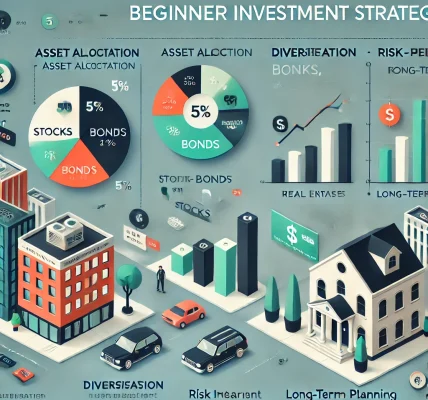Introduction
Managing your finances efficiently is crucial for achieving financial security and long-term wealth. With the rise of technology, financial planning apps and tools have made it easier to budget, save, invest, and track expenses. Whether you’re looking to reduce debt, increase savings, or plan for retirement, the right financial app can help you stay on top of your goals.
This guide explores the best financial planning apps and tools that can simplify money management and enhance your financial well-being.
1. Best Budgeting Apps
Budgeting is the foundation of financial planning. The following apps help track income, expenses, and spending habits:
a. Mint
- Features: Tracks spending, categorizes expenses, and offers personalized budgeting insights.
- Pros: Free to use, easy-to-read financial reports.
- Cons: Advertisements and third-party financial product recommendations.
b. YNAB (You Need a Budget)
- Features: Zero-based budgeting, real-time syncing across devices, and financial goal setting.
- Pros: Encourages proactive budgeting, excellent financial education resources.
- Cons: Monthly subscription fee.
c. PocketGuard
- Features: Tracks cash flow, prevents overspending, and suggests ways to save money.
- Pros: Simple interface, “In My Pocket” feature to show available spending after bills and savings.
- Cons: Limited customization options.
2. Best Savings and Investment Apps
Saving and investing are key aspects of financial planning. These apps help automate savings and offer investment opportunities:
a. Acorns
- Features: Rounds up daily purchases to invest spare change, offers automated investing.
- Pros: Ideal for beginners, passive investing strategy.
- Cons: Monthly fees may outweigh small investment gains.
b. Robinhood
- Features: Commission-free trading for stocks, ETFs, and cryptocurrencies.
- Pros: User-friendly interface, fractional shares available.
- Cons: Limited investment research tools.
c. Stash
- Features: Personalized investment recommendations, fractional investing, automated saving tools.
- Pros: Low entry barrier for beginners.
- Cons: Subscription-based pricing.
3. Best Apps for Expense Tracking
Tracking expenses ensures you stay within budget and avoid financial pitfalls.
a. Expensify
- Features: Scans receipts, categorizes expenses, and generates expense reports.
- Pros: Ideal for business professionals and freelancers.
- Cons: Some advanced features require a paid plan.
b. Goodbudget
- Features: Uses the envelope budgeting system for better expense allocation.
- Pros: Helps with mindful spending.
- Cons: Requires manual expense input.
4. Best Apps for Debt Management
Eliminating debt is crucial for financial freedom. These apps help manage loans and credit card payments:
a. Undebt.it
- Features: Allows users to create debt repayment plans using the avalanche or snowball method.
- Pros: Free, highly customizable repayment strategies.
- Cons: No mobile app, web-based only.
b. Tally
- Features: Automates credit card payments and offers a line of credit to pay off high-interest debt.
- Pros: Simplifies credit card debt management.
- Cons: Requires a good credit score for the best rates.
5. Best Retirement Planning Apps
Planning for retirement early ensures a financially secure future. These apps assist in building and managing retirement savings:
a. Personal Capital
- Features: Retirement planning calculator, investment tracking, and wealth management tools.
- Pros: Comprehensive financial insights and portfolio analysis.
- Cons: Requires linking financial accounts for the best experience.
b. Blooom
- Features: Optimizes 401(k) plans and provides investment recommendations.
- Pros: Affordable for beginner investors.
- Cons: Limited to retirement accounts.
6. Best Apps for Tax Planning
Taxes play a vital role in financial planning. These apps make tax filing and planning easier:
a. TurboTax
- Features: Step-by-step tax filing assistance, deductions, and audit support.
- Pros: User-friendly, accurate tax calculations.
- Cons: Higher pricing for premium features.
b. TaxSlayer
- Features: Budget-friendly tax filing options, IRS audit support.
- Pros: Affordable for self-employed individuals.
- Cons: Limited customer support.
7. Best All-in-One Financial Planning Apps
For those looking for comprehensive financial planning, these apps offer an all-in-one solution:
a. Empower
- Features: Budgeting, investment tracking, retirement planning, and wealth management.
- Pros: A holistic view of financial health.
- Cons: Some features require premium access.
b. Honeydue
- Features: Helps couples manage finances together, track expenses, and set financial goals.
- Pros: Ideal for partners managing joint expenses.
- Cons: Limited investment and retirement planning tools.
Conclusion
Financial planning apps and tools can simplify money management, helping you budget, save, invest, and eliminate debt. Choosing the right app depends on your financial goals and needs. Whether you’re looking to track expenses, invest, or plan for retirement, these financial tools can empower you to take control of your finances.


